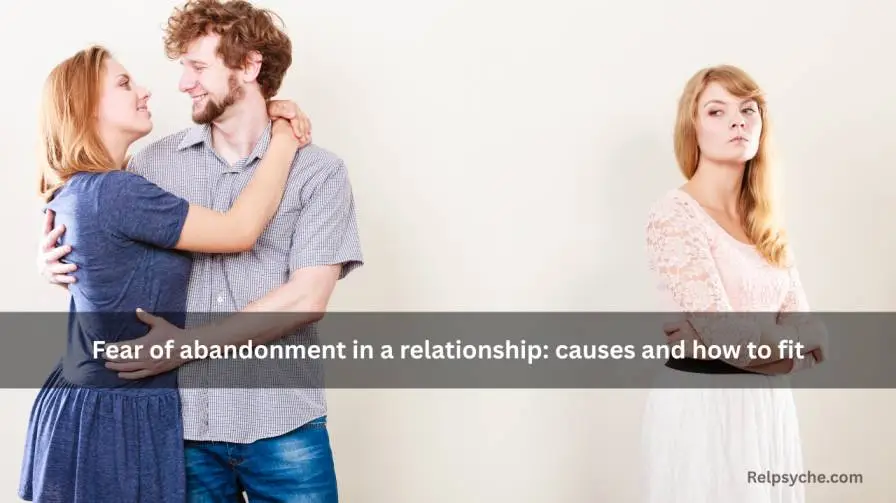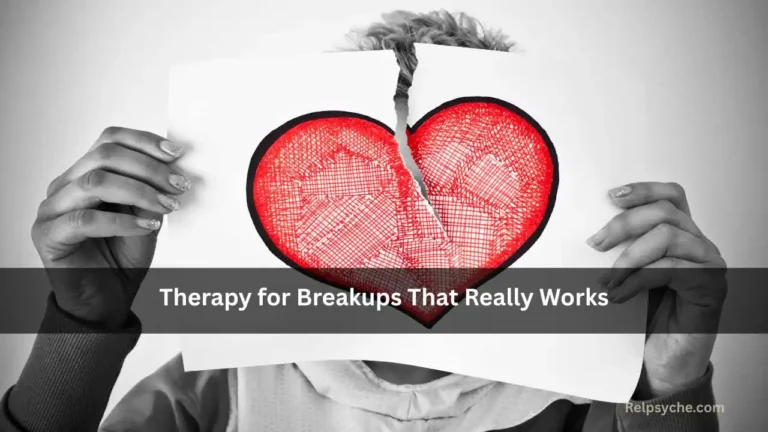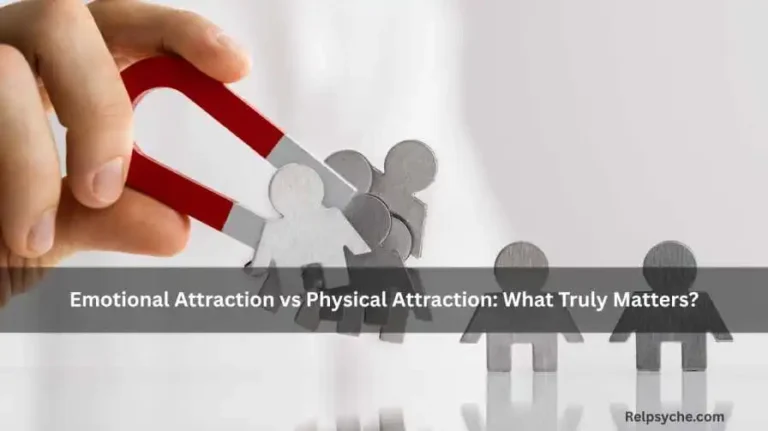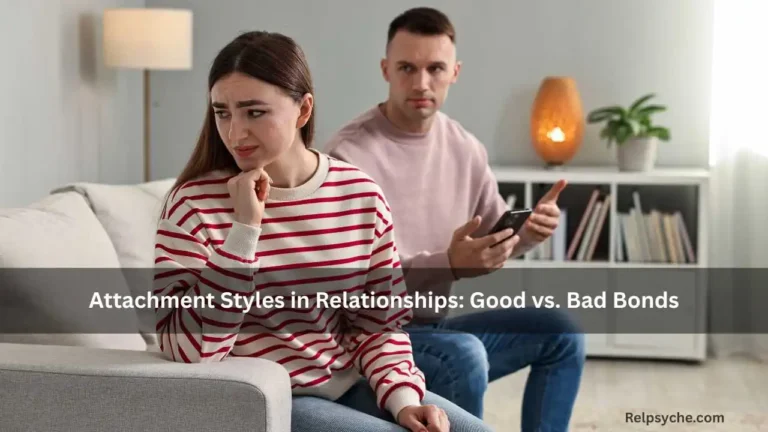Fear of abandonment in a relationship: causes and how to fit
The fear of abandonment is one of the most painful emotions in a relationship. It can manifest as anxiety, insecurity, or a constant need for reassurance. You may feel distressed when your partner distances themselves, doubts their love, or fears they’ll leave you at any moment. Although on the surface it may seem like jealousy or dependency, it’s actually a deep fear of losing the emotional bond that gives you security.
This fear is often rooted in past experiences: previous relationships, childhood wounds, or situations where you felt rejected or undervalued. Over time, these memories transform into an internal alert that makes you experience the relationship with constant vigilance and worry. Therefore, understanding it and learning to manage it is necessary to build healthier and more secure bonds.
Causes of fear of abandonment in a couple
The fear of abandonment doesn’t arise out of nowhere. It’s often rooted in each of our personal histories:
- Often, this fear originates from early experiences of loss, rejection, or lack of emotional attention during childhood. When a child grows up feeling that love or security can disappear at any moment, they learn to associate emotional bonding with the possibility of being abandoned.
- In adulthood, these unresolved wounds are reactivated within romantic relationships. Situations such as a previous breakup, infidelity, or having been with emotionally distant people can reinforce the belief that love always ends or that one is unworthy of being chosen.
- Factors such as low self-esteem, personal insecurity, and emotional dependence also play a role, making emotional stability overly dependent on one’s partner. This generates anxiety at any sign of distance or change, no matter how small.
Understanding the causes of fear of abandonment doesn’t mean justifying it, but rather understanding where it comes from in order to change it. Only by recognizing the source of the pain is it possible to begin to heal and build more balanced relationships, ones not based on the fear of loss, but rather built on trust, peace, and respect.
Signs that fear of abandonment is affecting your relationship
When the fear of abandonment begins to dominate the relationship, it manifests itself in a series of behaviors and emotions that generate tension and exhaustion:
- One of the most common signs is the constant need for attention or validation, feeling anxious if your partner doesn’t respond quickly, if they spend time with other people, or if they don’t express affection as you expect.
- Hypersensitivity to rejection may also arise . Neutral comments, silences, or disagreements are interpreted as signs of disinterest or that love is fading. This leads to frequent arguments or controlling behaviors, such as grabbing their phone to check their social media or conversations, demanding explanations, or constantly seeking reassurance.
- In other cases, fear of abandonment causes the opposite: avoiding showing emotions or needs for fear of seeming excessive. Thus, a relationship is built on repression and complacency, where authenticity is lost.
- Another clear indicator is self-effacement and dependency, when you prioritize the relationship so much that you put aside your own goals or friendships to avoid conflict or distance.
If you recognize these signs, don’t blame yourself; they’re a sign that fear is acting on your behalf. Identifying them is the first step toward regaining emotional balance and building more secure and free relationships.
How to overcome the fear of abandonment by my partner?
Overcoming the fear of abandonment isn’t about eliminating the fear all at once; it requires learning to relate to it in a more conscious and compassionate way.
- The first step is to acknowledge it without judging yourself. Accepting that you feel fear doesn’t make you weak; it makes you human. Understanding that this emotion has deep roots will allow you to deal with it patiently and without guilt.
- Next, work on strengthening your self-esteem and emotional autonomy. The stronger your relationship with yourself, the less you’ll depend on the behavior or presence of others to feel secure. Spend time pursuing your personal interests, friendships, and goals; regaining your individuality will help you stay balanced within the relationship.
- Also learn to regulate your emotions. When you notice anxiety, instead of reacting impulsively (for example, seeking control or approval), pause, breathe, and observe what you’re really feeling: a need for affection, a fear of losing, or a lack of confidence? Naming the emotion will help you avoid being swept away by it.
- Talking openly with your partner is another important step. Explaining your fears honestly, without demanding or blaming, can build understanding and closeness.
- However, if you find that fear overwhelms you or sabotages your relationship, psychological help can be a valuable way to heal attachment wounds and learn to build more secure bonds.
Remember that you don’t need to be perfect or have everything under control because healthy love is born when you choose from a place of calm, not fear.
Communication and trust techniques for couples
Strengthening trust in the relationship is the first step to reducing the fear of abandonment. The foundation lies in open, empathetic, and constant communication, where both partners can express their feelings without fear of judgment. One of the keys is to speak from emotion, not accusation. Instead of saying, “You never pay attention to me,” you can say, “I feel insecure when I notice distance between us.” This way, you facilitate closeness instead of conflict.
Another useful technique is to practice active listening. You can look at your partner, put your phone aside, and listen without interrupting or preparing responses. Truly listening builds emotional safety and strengthens the bond.
It’s also important to follow through on your promises. Consistent actions and small demonstrations of respect and care build trust day after day, much more than grand gestures.
Finally, dedicate quality time to your relationship without distractions. Sharing pleasurable activities, laughing together, or simply talking calmly helps create a sense of emotional home.
Trust doesn’t appear out of nowhere; it’s cultivated through patience, consistency, and presence. And when you both feel close, the fear of abandonment weakens, and love can grow freely.

Conclusion
The fear of abandonment is a heavy emotional burden rooted deeply in past experiences, but it is not a permanent sentence. As this guide has shown, healthy love is not about having everything under control; it’s about choosing your partner from a place of calm, not fear. By learning to acknowledge your fear without judgment, strengthening your own self-esteem, and communicating your emotional needs clearly and honestly, you break the cycle of anxiety and hyper-vigilance. The work of healing your attachment wounds allows you to step away from the exhausting cycle of seeking constant reassurance. Remember that trust is built slowly, day by day, through consistent action and presence. When you learn to become your own source of security, the need to fear loss fades, and your relationship can finally grow into the secure, peaceful, and loving bond you deserve. You have the power to reclaim your emotional balance and build a future based on trust, not terror.
Ready to take the next step in your personal growth? Explore expert services — from therapy to life coaching — available on Fiverr.
If you want to read more articles similar to Fear of Abandonment in a relationship: causes and how to fit, you need to know that we recommend that you enter our Relationships category.
FAQs
1. What is the root cause of the fear of abandonment in relationships?
The root cause of this deep-seated fear is almost always traced back to early experiences of loss, rejection, or emotional neglect during childhood. These unresolved wounds are reactivated in adult relationships, making the individual fear the loss of their primary source of security.
2. Can you overcome the fear of abandonment without therapy?
It is possible, but difficult. Mild cases can often be managed by actively strengthening self-esteem, setting healthy boundaries, and improving communication. However, if the fear is deeply rooted in childhood trauma or severely sabotages your relationships, psychological help is highly recommended to properly heal the attachment wounds.
3. How do I know if my partner is afraid of abandonment?
The clearest signs are a constant, intense need for reassurance or validation, extreme hypersensitivity to rejection (interpreting normal disagreements as signs of disinterest), controlling behaviors, and putting aside their own life/goals (self-effacement) to prioritize the relationship and prevent distance.
4. What is the best way to reassure a partner who is afraid of abandonment?
The best way is through consistency and predictability, rather than grand gestures. Follow through on small promises, dedicate quality time without distractions, and use empathetic communication. When they express fear, validate their feeling first (“I hear that you feel insecure”), then offer reassurance.
5. Does the fear of abandonment lead to relationship dependency?
Yes. When an individual’s emotional stability becomes overly reliant on their partner’s presence and affection, they develop emotional dependency. They prioritize the relationship over their own needs and individuality, which unfortunately can put more pressure on the partner and paradoxically increase the risk of the distance they fear.
References
Literature
- Dagan, O., Groh, A., Madigan, S., and Bernard, K. (2021). A lifespan development theory of insecure attachment and internalizing symptoms: integrating Meta-Analytic evidence via a testable evolutionary Mis/Match hypothesis. Brain Sciences , 11 (9), 1226. https://doi.org/10.3390/brainsci11091226
- Sagone, E., Commodari, E., Indiana, ML, and La Rosa, VL (2023). Exploring the Association between Attachment Style, Psychological Well-Being, and Relationship Status in Young Adults and Adults—A Cross-Sectional Study. European Journal of Investigation in Health Psychology and Education , 13 (3), 525–539. https://doi.org/10.3390/ejihpe13030040
- Simpson, J. A., and Rholes, W. S. (2016). Adult attachment, stress, and romantic relationships. Current Opinion in Psychology , 13 , 19–24. https://doi.org/10.1016/j.copsyc.2016.04.006

I’m Emma Johnson, a psychologist who loves to write and share ideas.
I enjoy making psychology simple so everyone can understand and use it in daily life.
If you’d like to talk, ask questions, or work together, feel free to reach out.
Let’s learn and grow in the world of psychology together!







